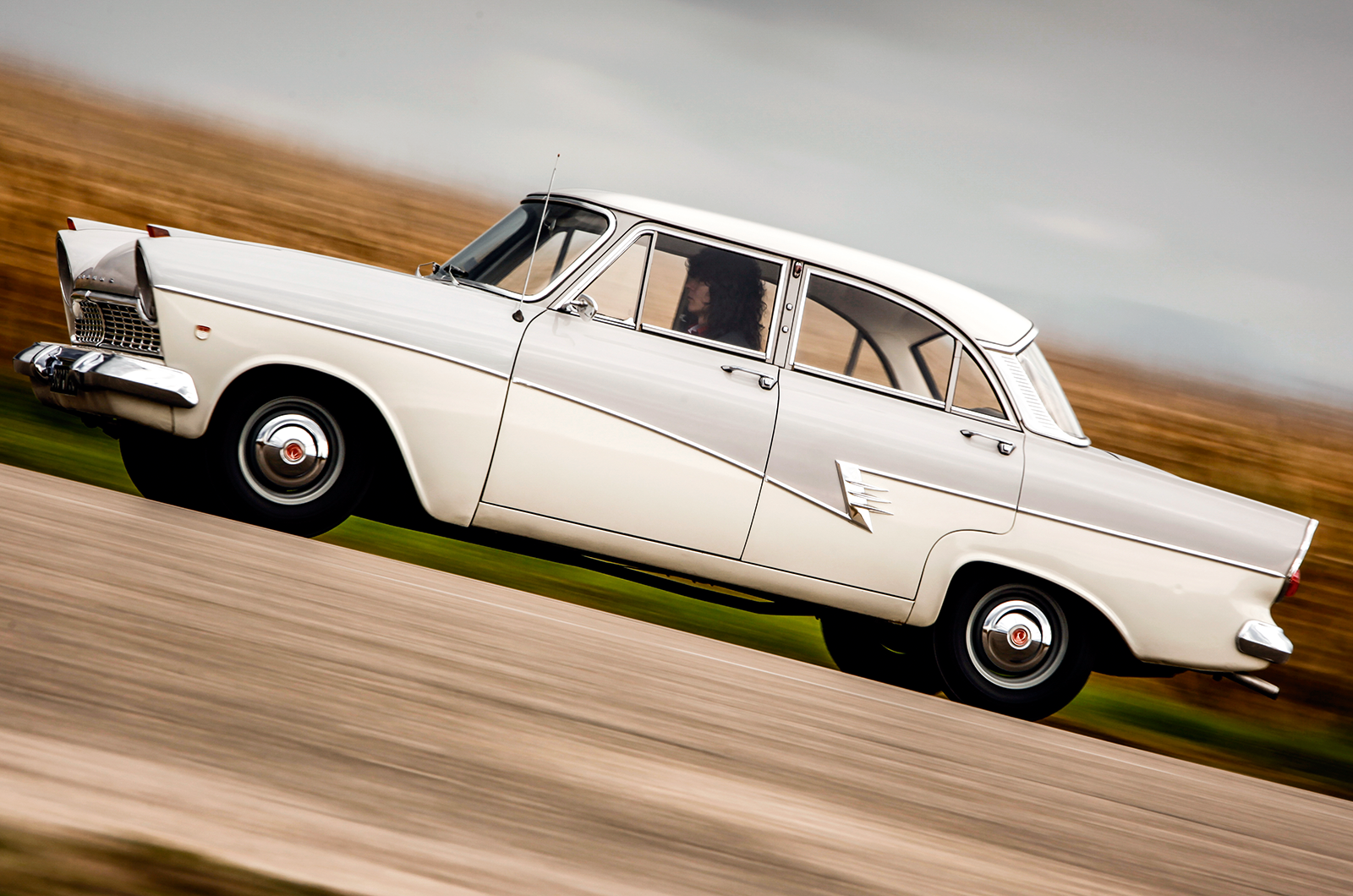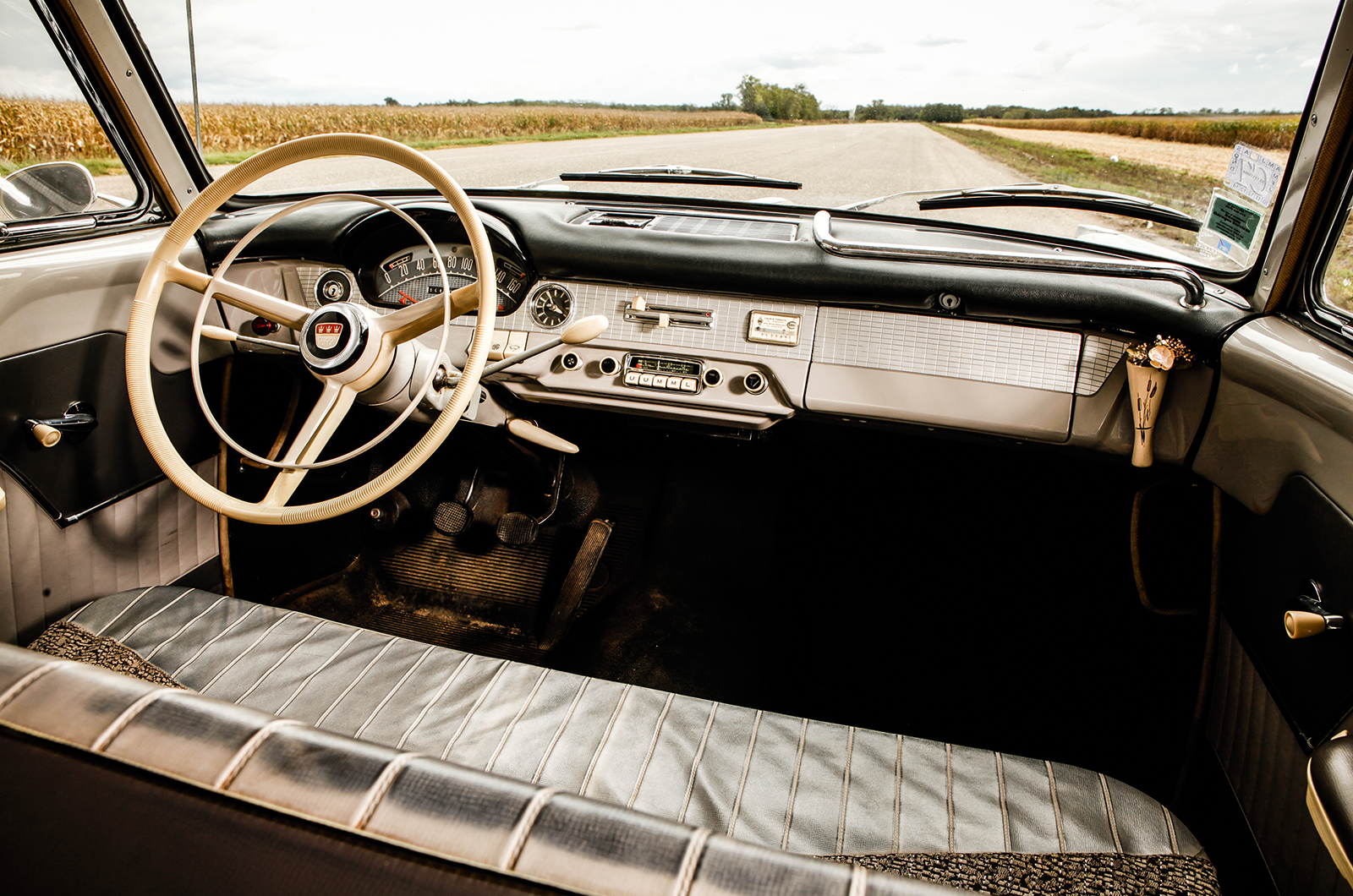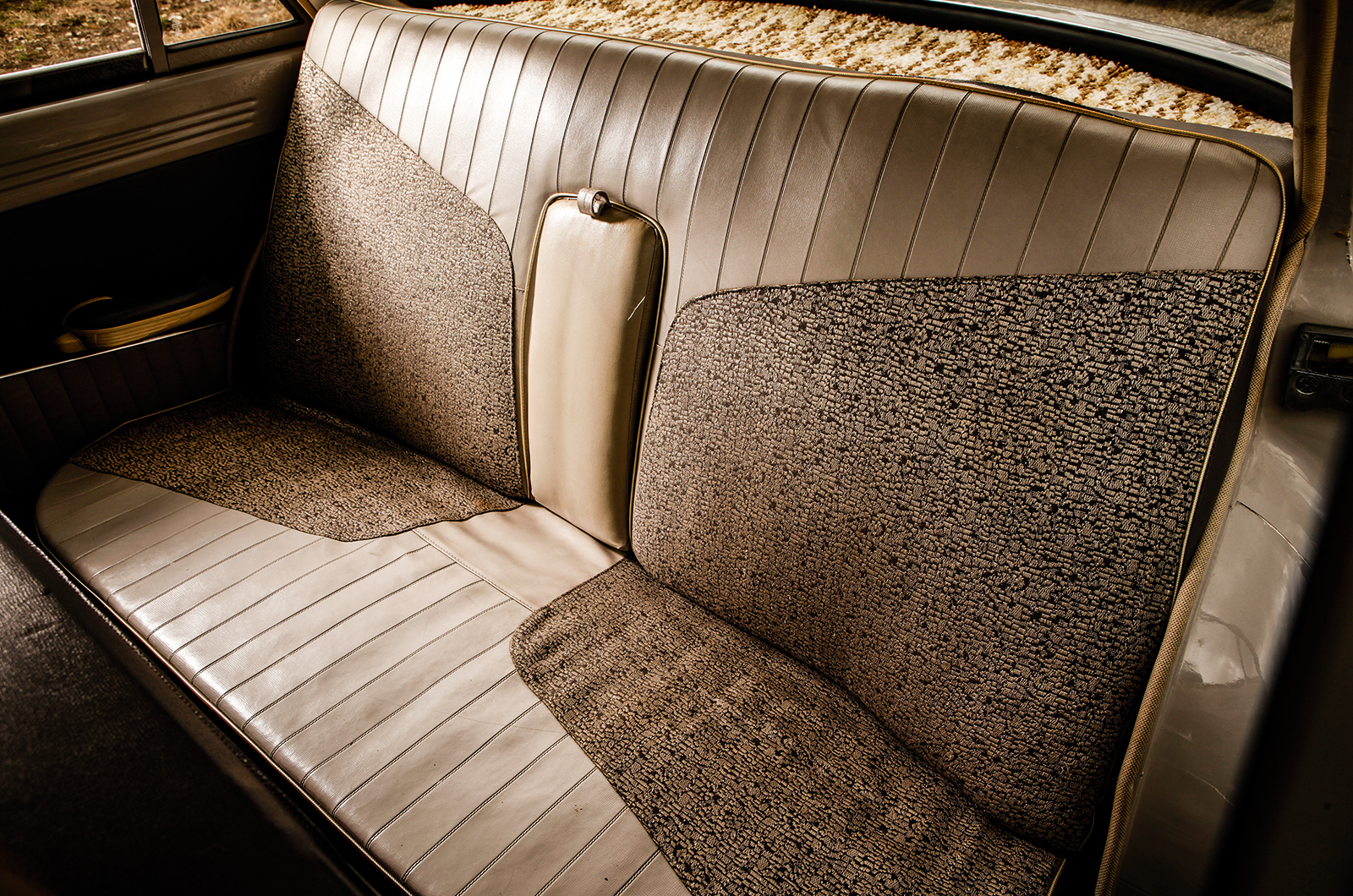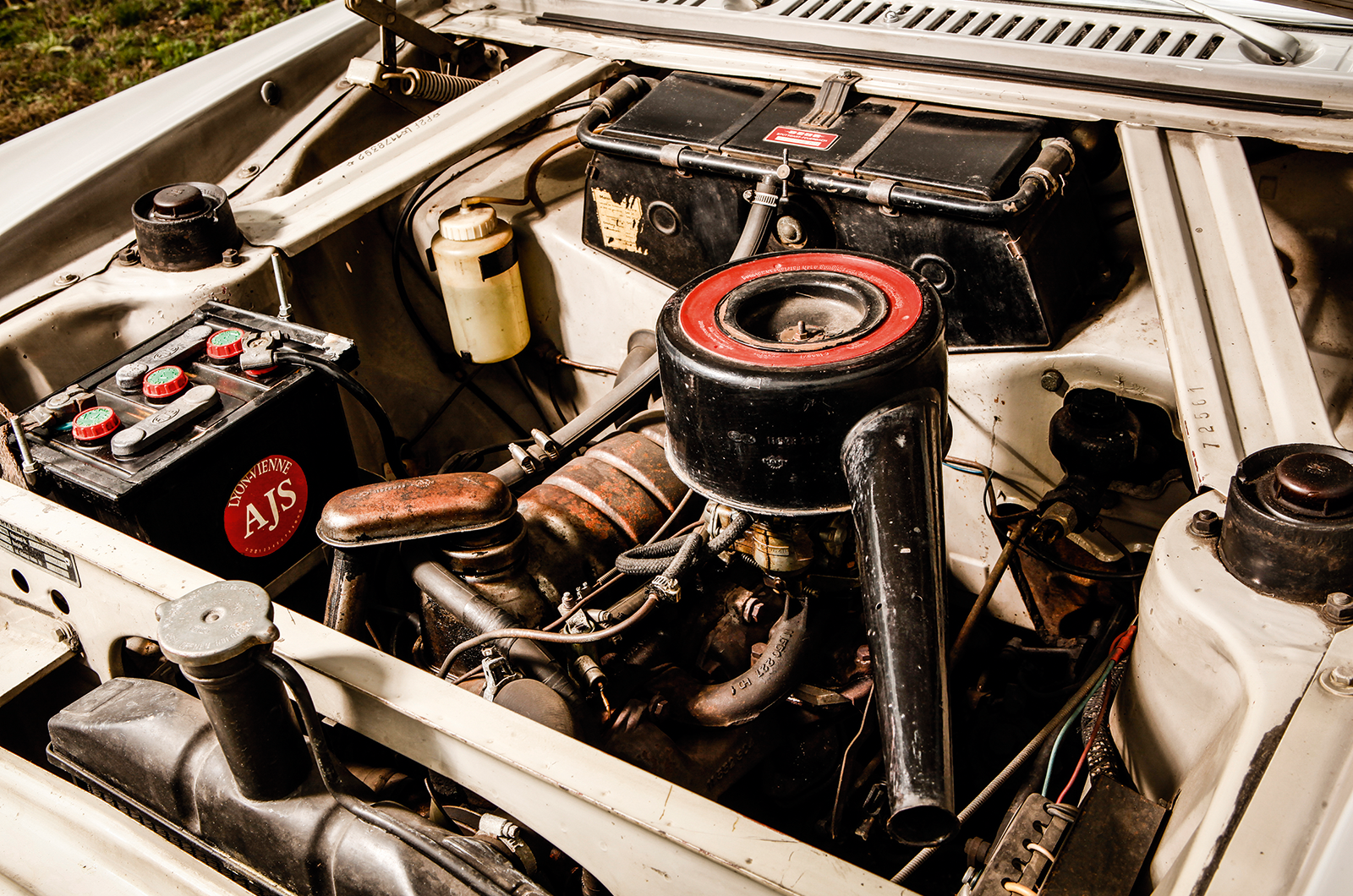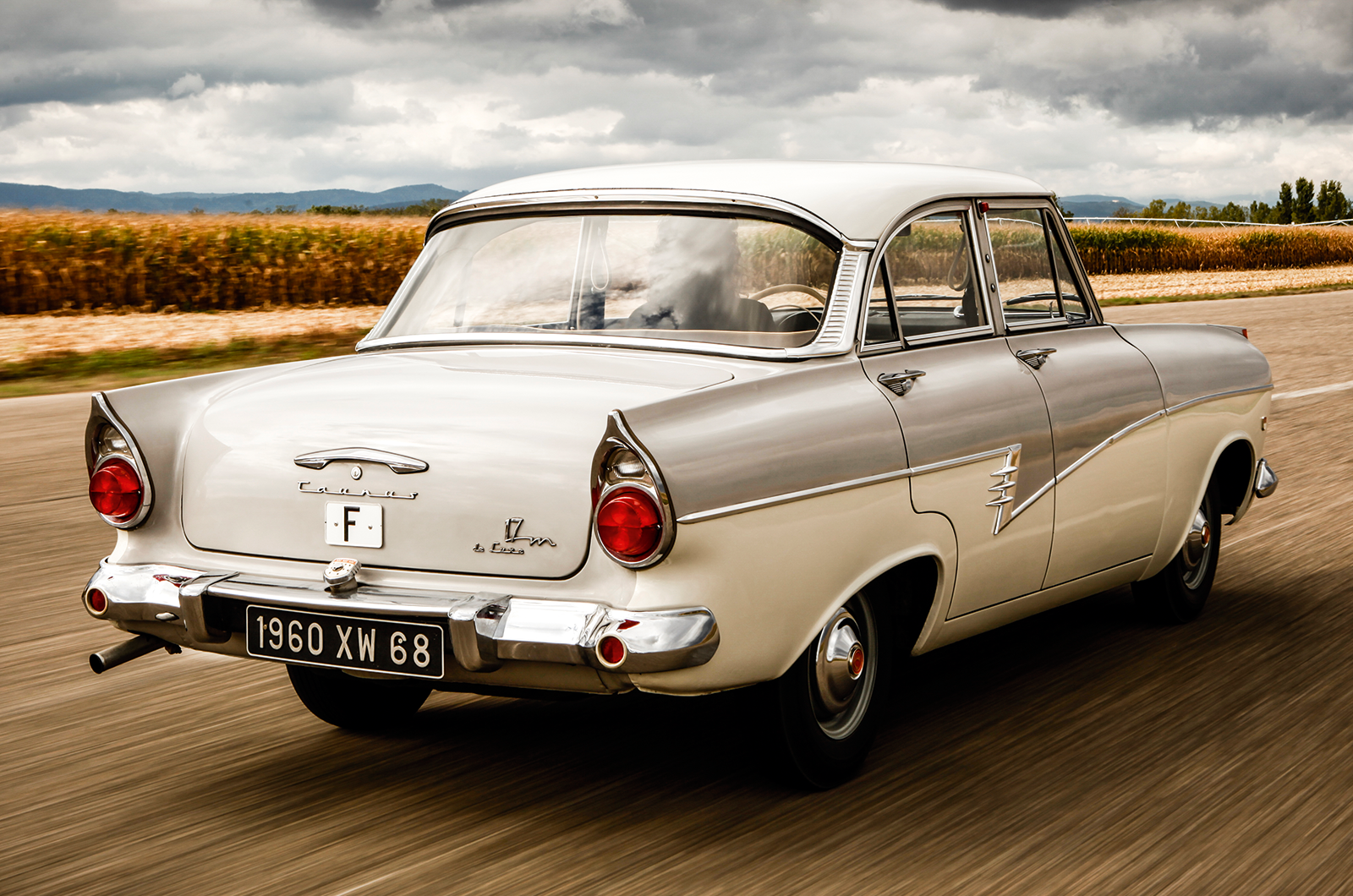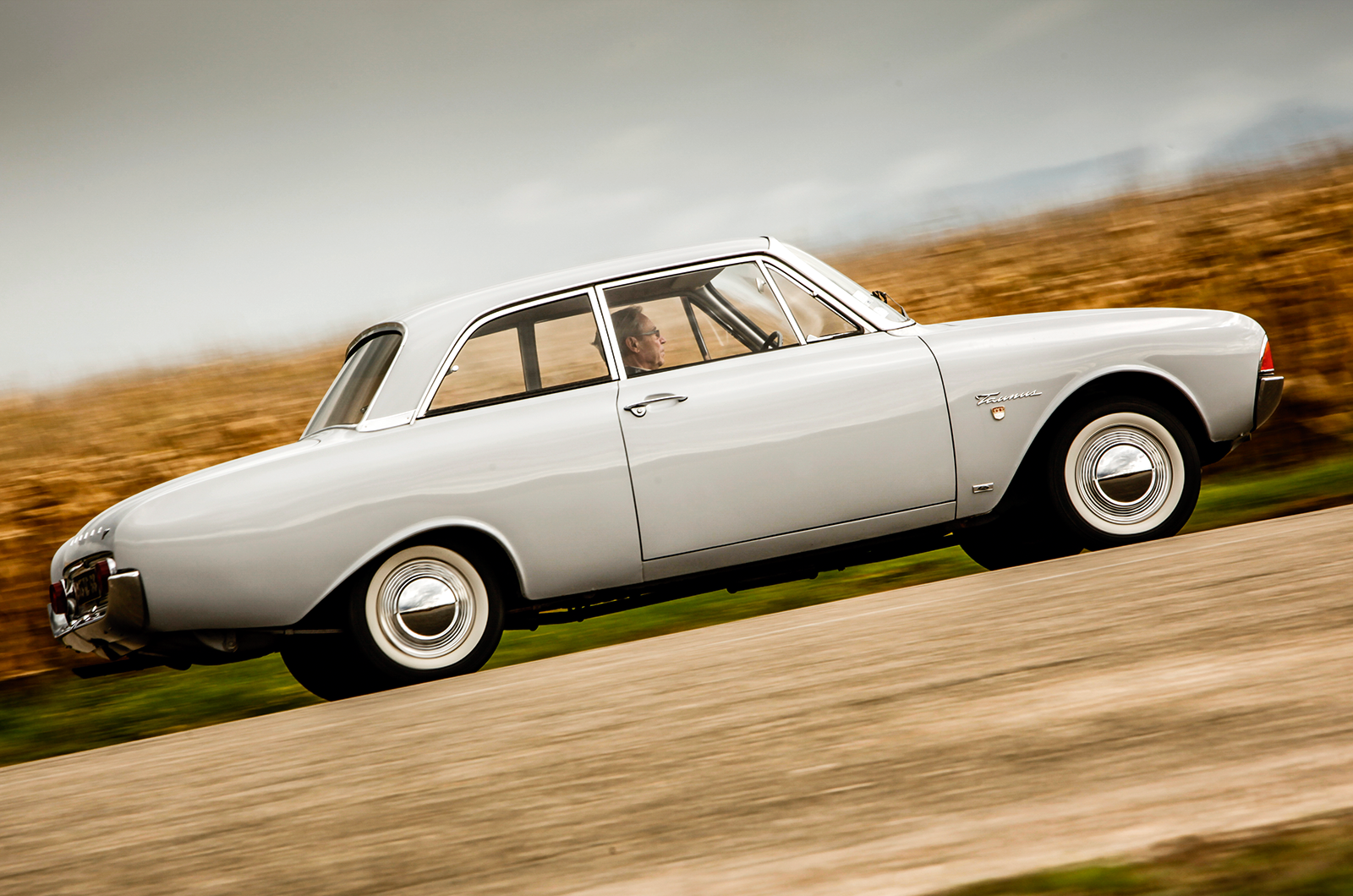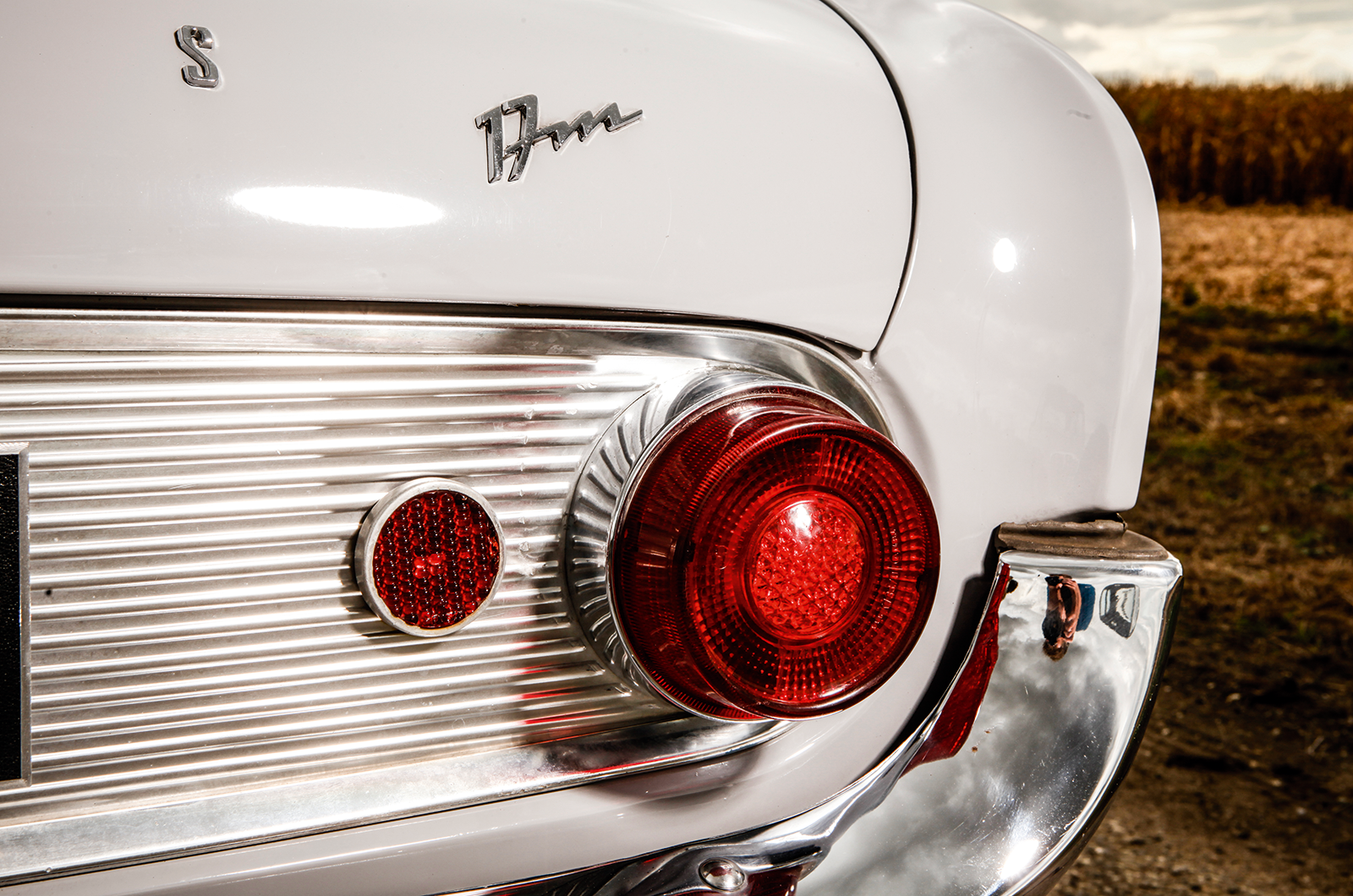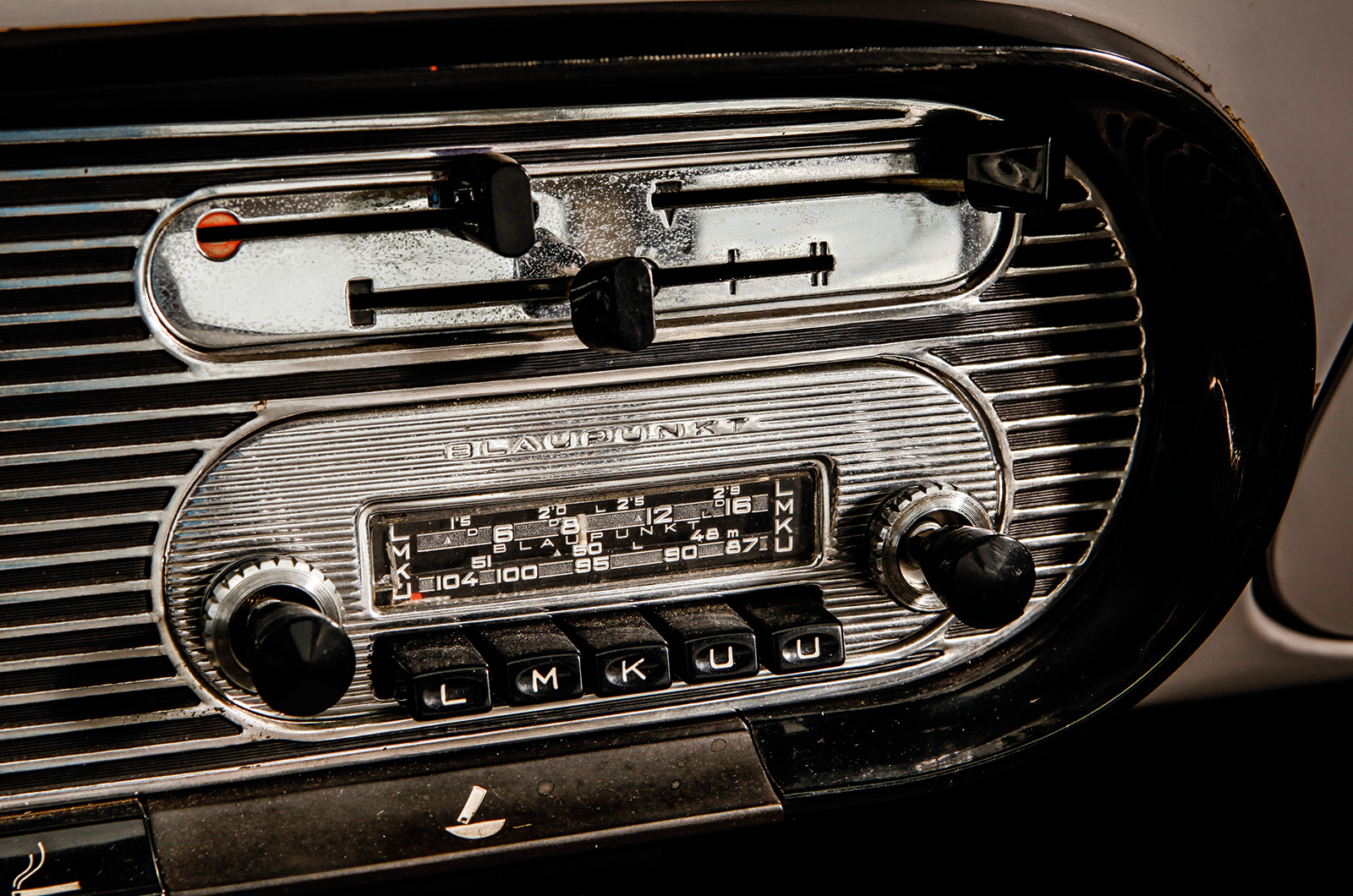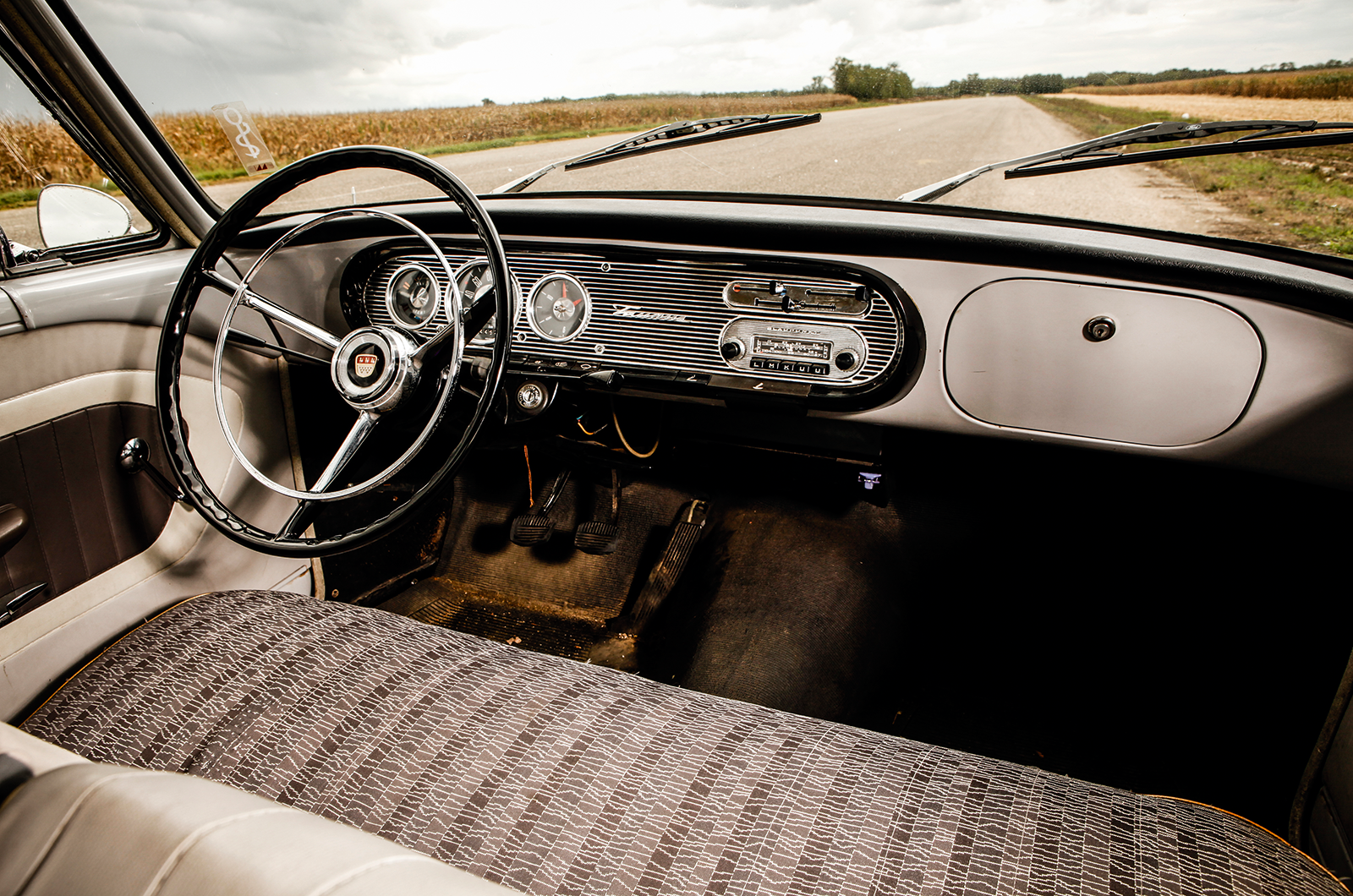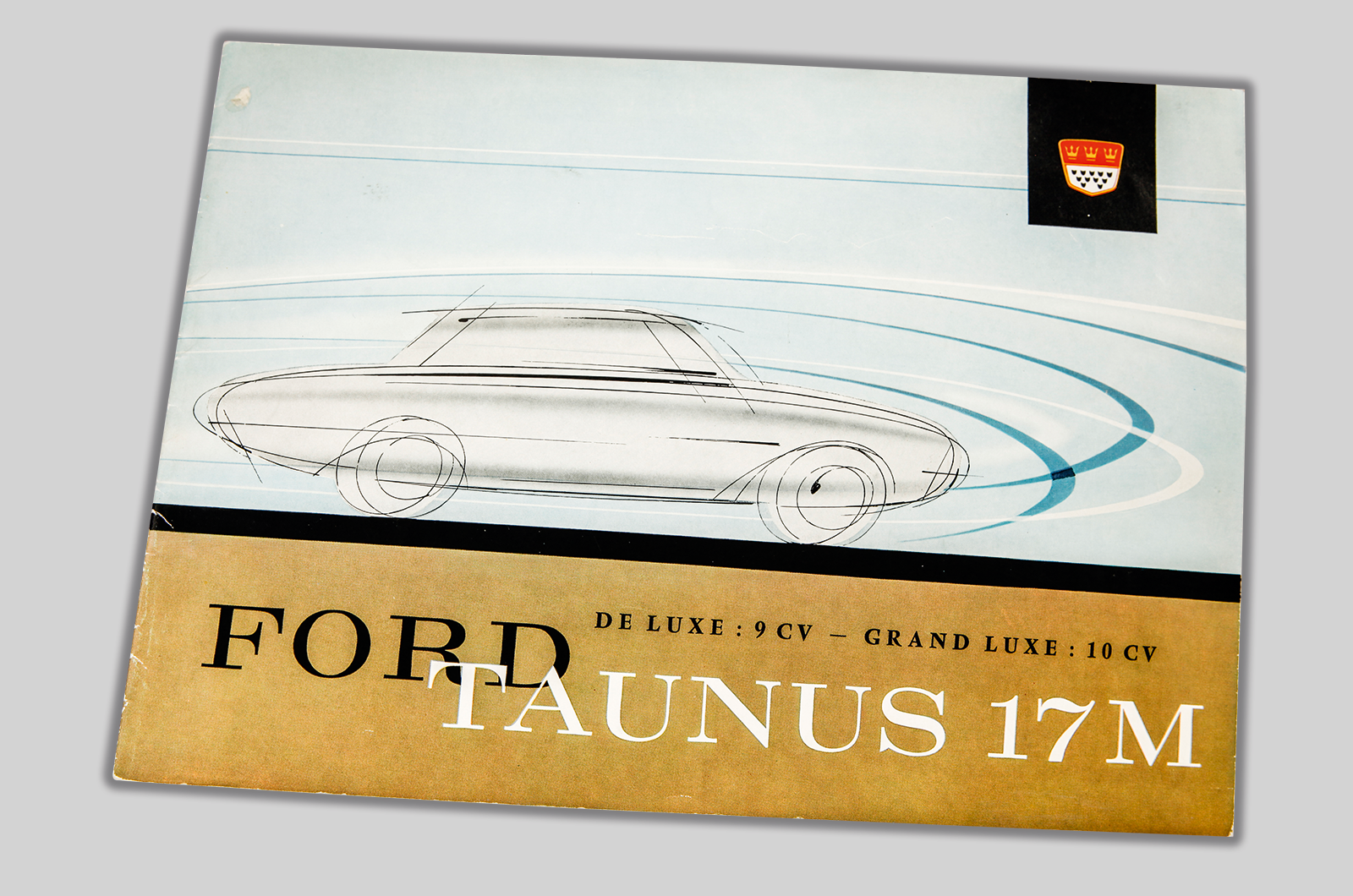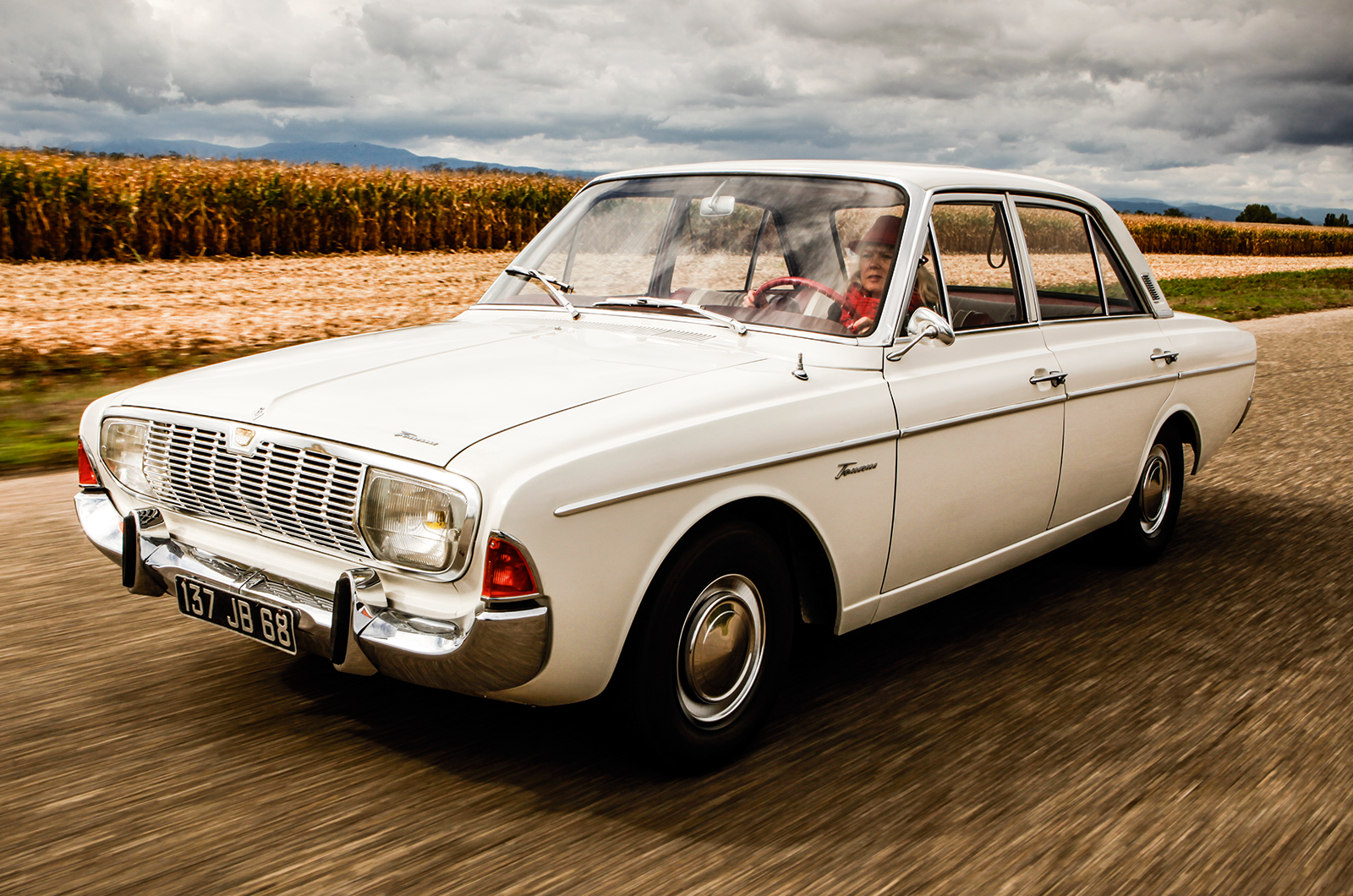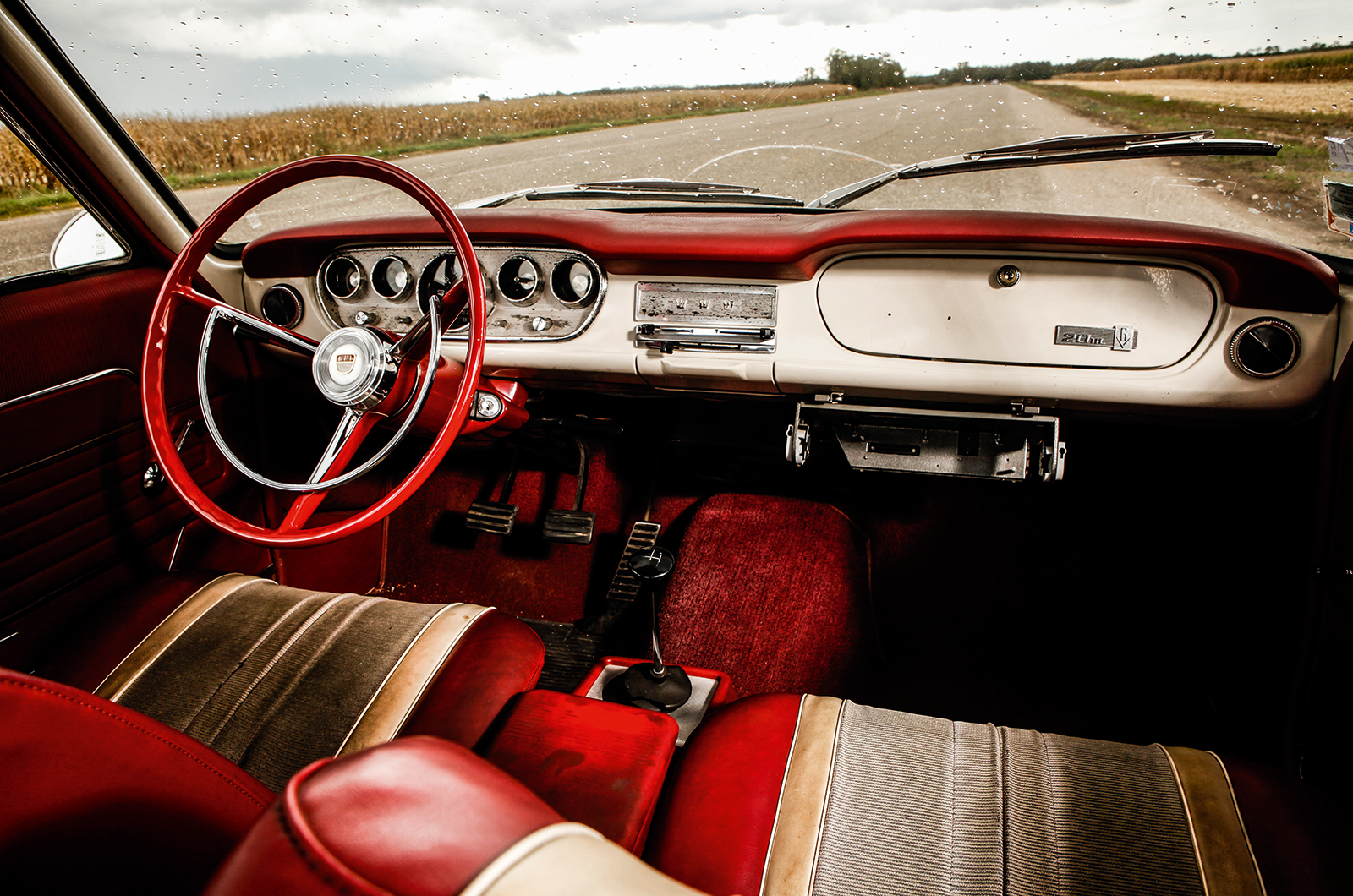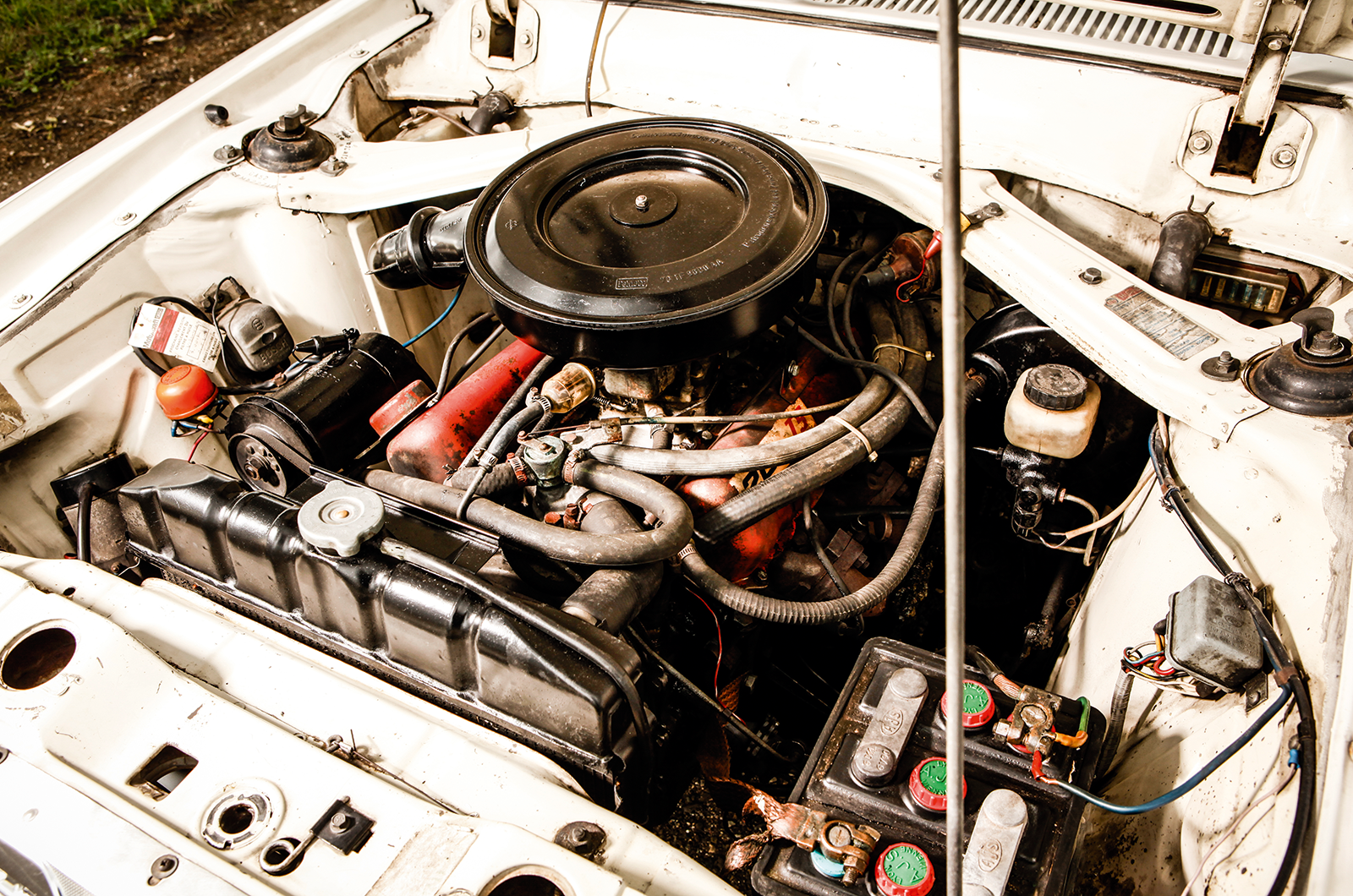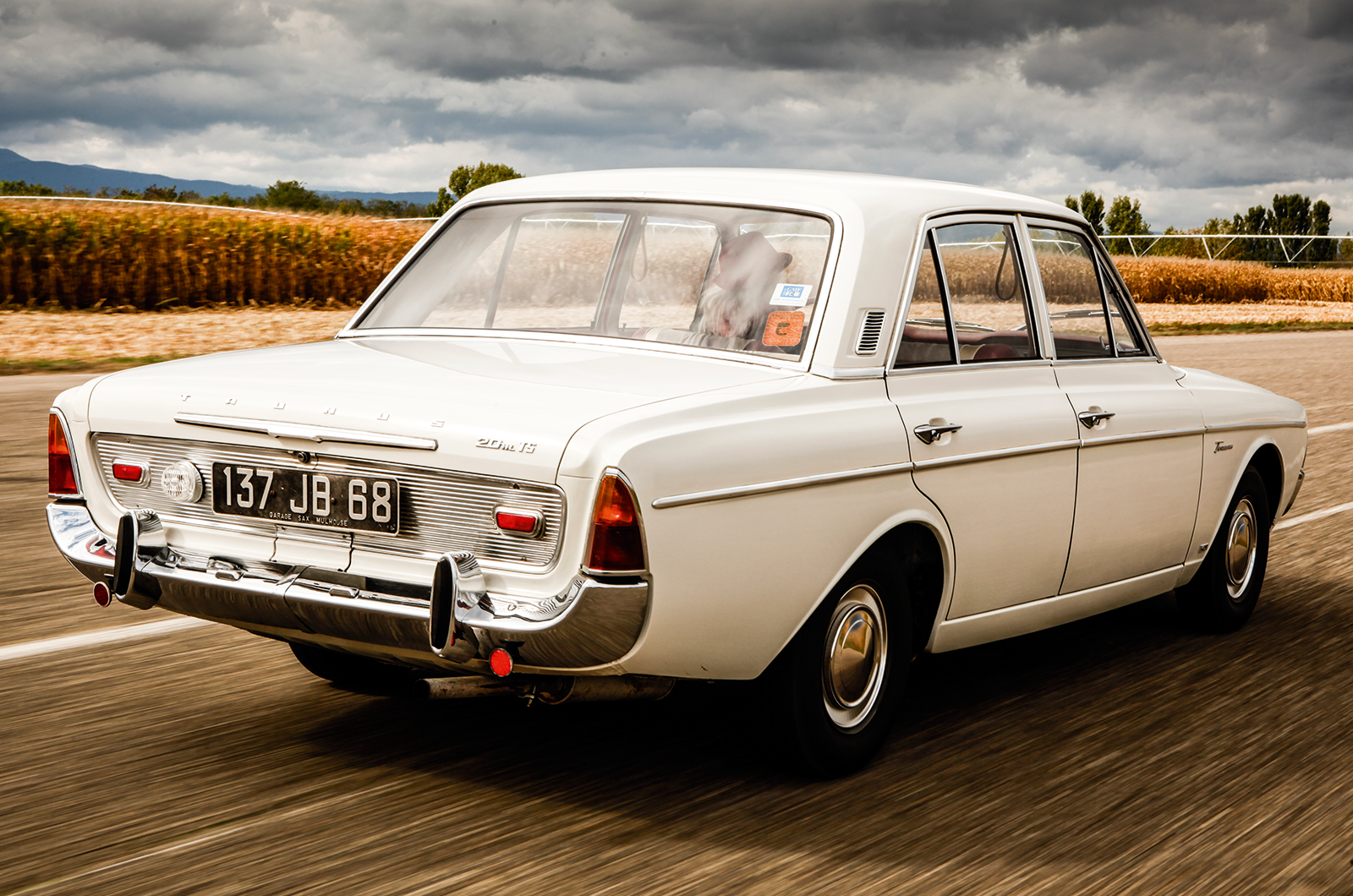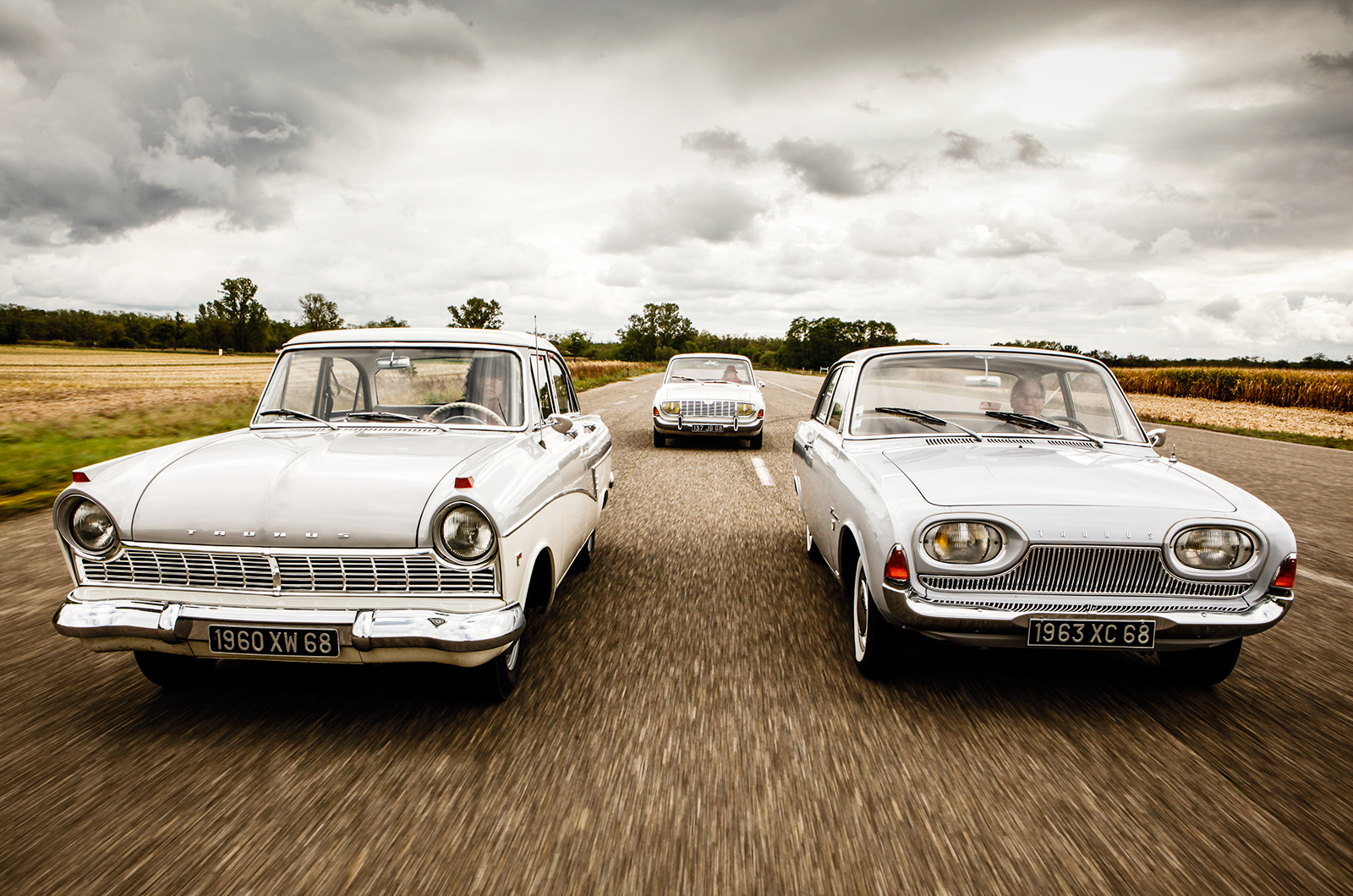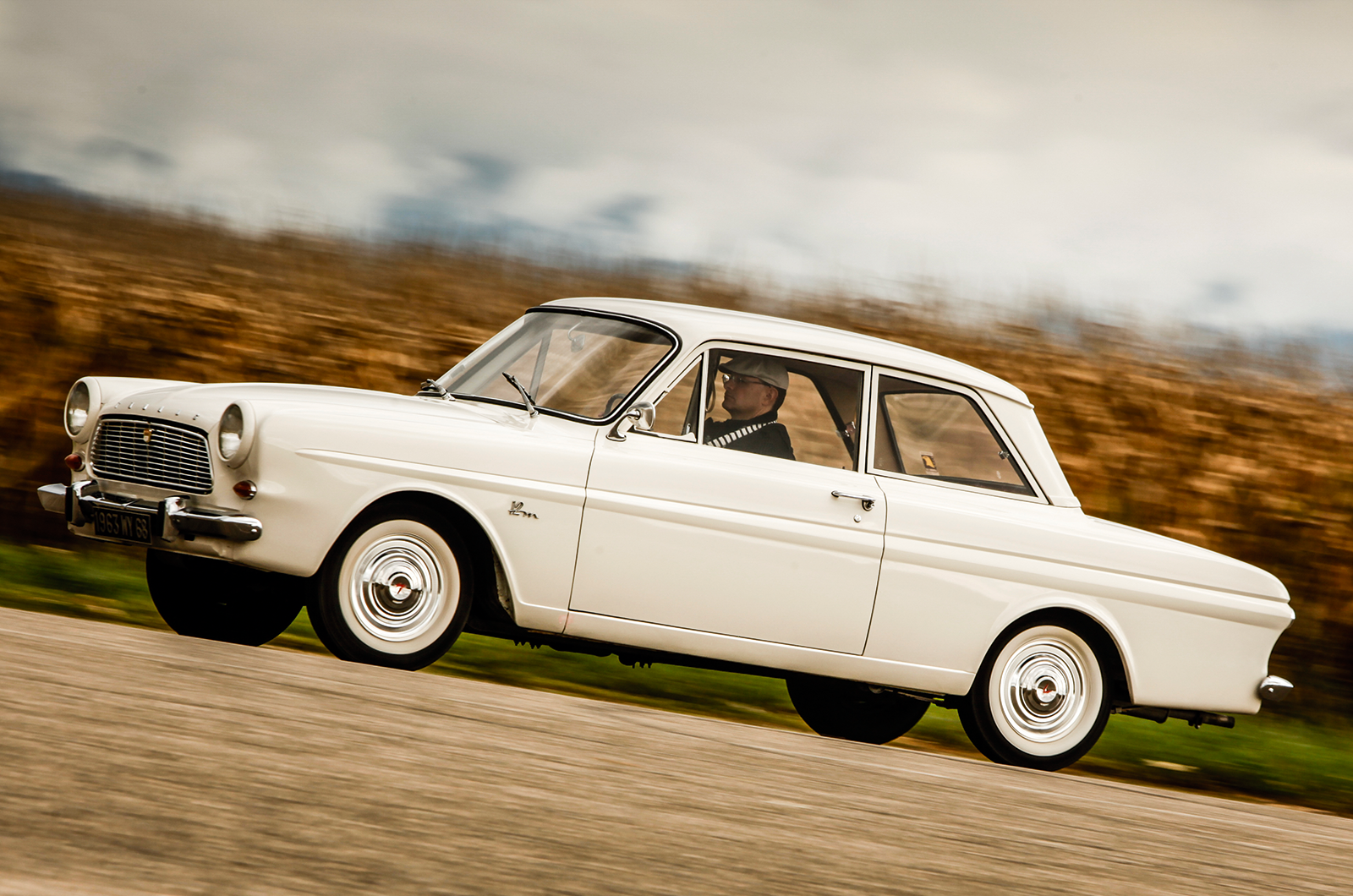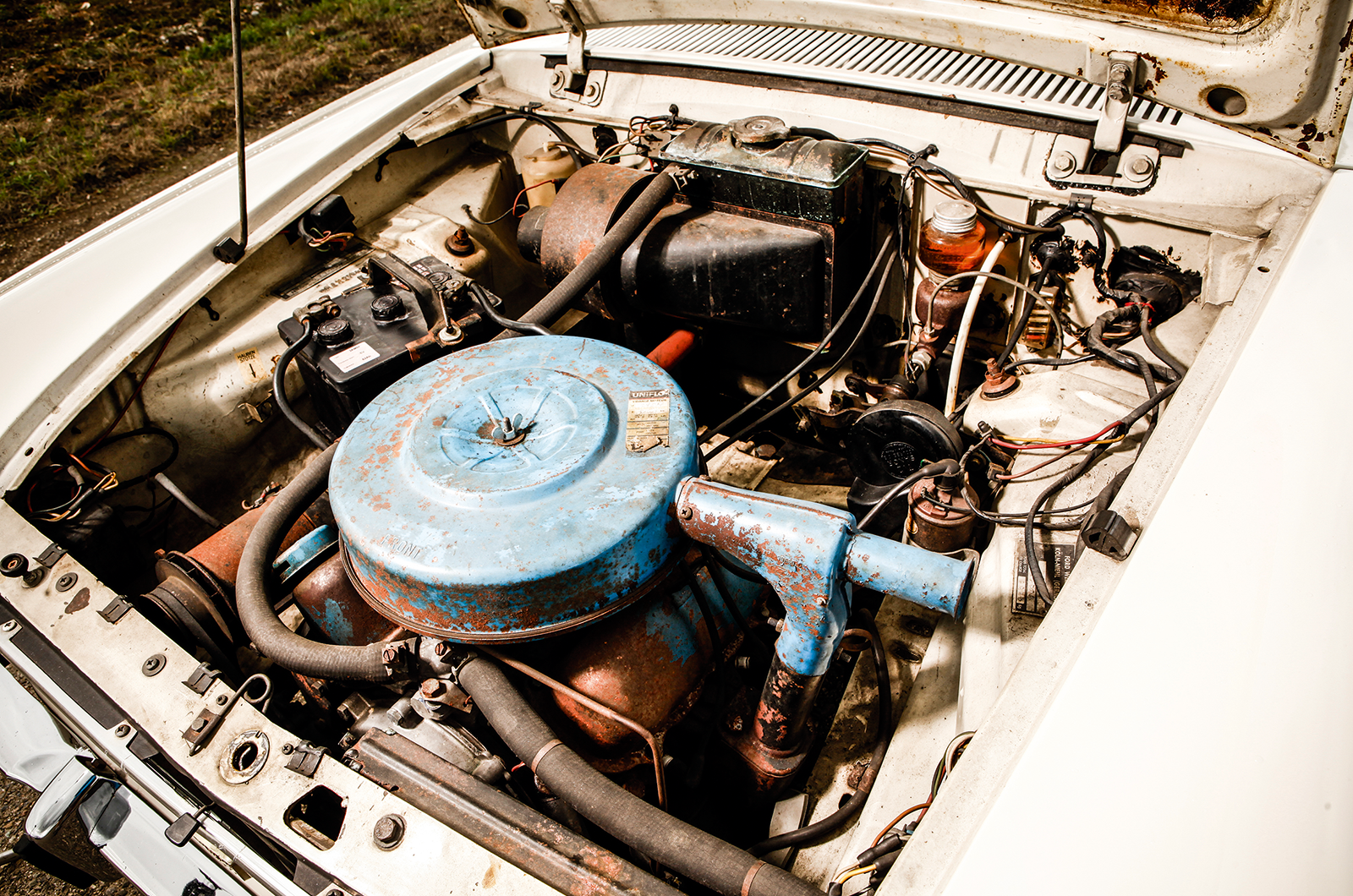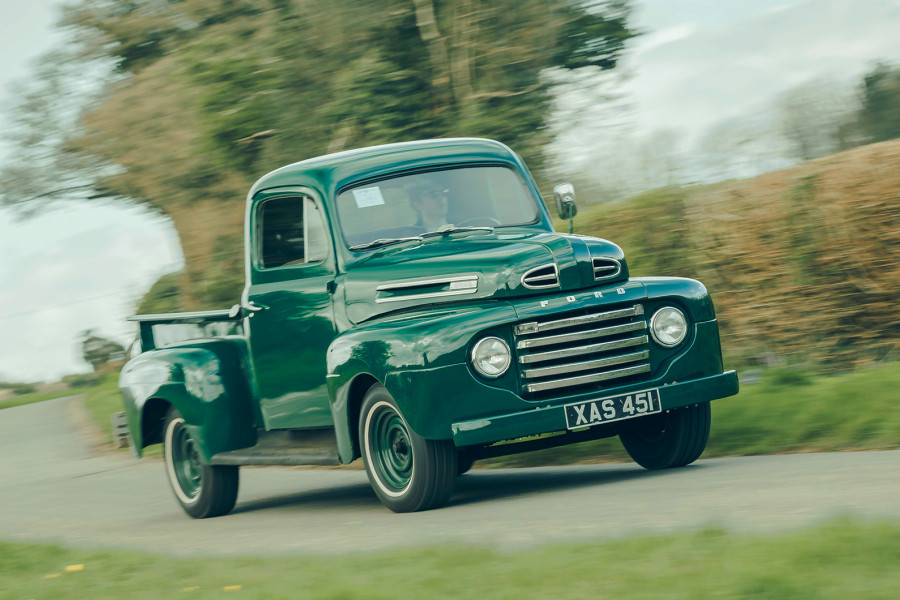Unexpected is the clunky action of the floor change, which lacks the smoothness of the preceding column shifts.
Possibly more of a downside is the slightly garish interior, with its metal-flecked seats and plastic-chrome instrument panel.
The Ford Taunus P5 has a 2-litre V6, and it will cruise easily at 75mph
Despite an emphasis on quality in the advertising of the period, the P5 was a Ford, not a Mercedes. Bear that in mind, and you can see the car’s appeal.
Lightly retouched over its predecessor it may be, but the P5 is a generation ahead – and with that 85bhp V6 would surely have eaten its nearest British equivalent, the not dissimilar Corsair.
How should one judge our trio of Taunuses? Let’s face it, none of them is likely to light blazing fires of automotive ardour.
They are pretty prosaic machines. Pushed to explain his love of the cars, Rousset could come up with nothing more solid than the nostalgia they evoke.
But I’ll buy into that. The P5 is a bit modern for me, although I could see myself in a snazzy duotone P2.
The German-built Ford Taunuses are stylish, practical saloon cars
It has to be a more sensible way of playing the pocket-sized-Yank card than smoking around in a flathead-V8 Simca Vedette while watching the fuel gauge head southwards.
The ‘Bathtub’ P3 presses a few buttons, too: as a car that I associate not only with childhood European holidays, but also for its stylistic bravery.
These Fords are usable old things, but not so old that they aren’t everyday-practical. They have a period charm and rarity that is arguably lacking in the Austin Cambridges of this world, while being perfectly agreeable to drive.
That’s not a bad set of virtues, don’t you think?
Images: Tony Baker
Thanks to: Frank Rousset of Taunus Mania; Jean Walter, Alexandra Dusolle-Lochert and Michel Wiederkehr
This was first in our June 2016 magazine; all information was correct at the date of original publication
Ford Taunus P4: the front-wheel-drive car
Front-wheel drive and compact, the Ford Taunus P4 was supposed to challenge the VW Beetle
The Ford Taunus P4 12M was an accident of corporate history.
Ford’s compact Falcon was an instant success in the States, but it had not really taken the fight to Volkswagen, so Dearborn went a size smaller in its bid for a Beetle-beater.
The new design was based around a V4-powered front-drive module; this would incorporate the suspension and steering and could be slotted into the shell as one unit.
This ‘Pony Pac’ would be made in Germany and shipped to the US, where the car would be assembled in Kentucky. It would also be built in Germany.
At the last moment, however, Ford in the States got cold feet over the dreary-looking sub-compact, which was both over-budget and under-developed.
Having been branded “a loser” by Ford general manager Lee Iacocca, the car – coded ‘Cardinal’ – was handed over to Cologne, which launched it in September ’62.
The Ford Taunus P4 12M’s 40bhp V4 engine
Conceptually flawed, the Pony Pac posed problems, not least with the transverse-leaf suspension, which had its lower arms pivoting off the gearbox until a 1964 redesign.
But Ford persisted, and with a restyle in ’66 the front-drive 12M and 15M continued until 1970, by which time more than 1.36 million had been made.
The 1183cc unit of Rousset’s ’63 12M develops only 40bhp, but the P4 goes well enough, and the four-speed column shift is okay. Its drum brakes – discs came in for ’65 – are acceptable.
The Ford rides no better or worse than one would expect of a car with a leaf-sprung dead axle and has no handling quirks; the steering, by box instead of the rack of the ’66-on P6, is adequately quick.
This very ordinariness suggests that no salient advantages came from the added cost of front drive. The Cortina was surely a more sensible way forward.
Enjoy more of the world’s best classic car content every month when you subscribe to C&SC – get our latest deals here
READ MORE
Ford Taunus 20M RS: the cosmopolitan Rallye Sport
Ford Cortina at 60: celebrating a family favourite
Ford Corsair: the Thunderbird from Halewood
Jon Pressnell
Jon Pressnell is a contributor to Classic & Sports Car

